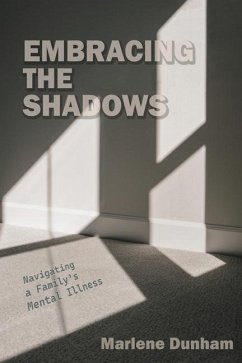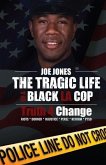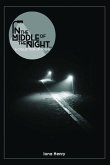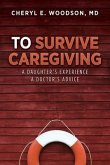Embracing The Shadows is a non-fiction narrative about three different types of mental illness in my family of origin. I asked the question, "Why not me?" along with searching for answers on how these illnesses were related. I tell of my father's Manic Depression that went unmedicated until Lithium was FDA-approved in 1967 when I was about seventeen years old. I talk about his psychosis, electroshock therapies, and New York Psychiatric Hospitals, with a harrowing story about his stay in the Bellevue Hospital Psych Ward. There are also some funny stories of what a Bipolar salesman can accomplish when manic. Secondly, I talk about my brother's life - being institutionalized at the age of 3 1/2 because he was "mentally retarded", which was the vernacular of the day. He spent 15 years at Willowbrook State School on Staten Island and I give the history of what happened there, starting with Geraldo Rivera's Expose in 1972 that led to its closing and ending with "The Path Forward", and the "Willowbrook Mile". The College of Staten Island (CUNY) is now located on the site of Willowbrook. Instead of hiding the atrocities that happened on this land, and motivated by the conviction that nothing like this should ever happen again, they have embraced it, educated the community, and built a Memorial Walking Trail called the"Willowbrook Mile." My third family member, my sister Lorraine, was diagnosed as schizophrenic around age 16. I delve into the story of her hospitalizations, along with a gripping story of our youngest sibling, only one and a half years old when Lorraine committed suicide, who was not told about her older brother or sister for some years and the effect that had on her. As a photographer, her catharsis was to do a series of photographs depicting what she imagined her sister went through in those years, leading up to the suicide in Greenwich Village in 1967. Those photos are included. Along with the story of her and I going back to that building in Washinton Square, Greenwich Village, NYC in 2009. After telling these stories I did some research into DNA and how Bipolar, Schizophrenia, and Level 3 Autism (if that was what my brother had) are found to be connected. Following are chapters about stigma, past and present, and how far we have come treatment-wise since the days of bloodletting and lobotomies and finally "Hope". Hope in the areas of genetic research; treatment of Schizophrenia; Technology, and Mental Health Parity. My Epilogue is about the emotional visit my youngest sister and I took to the group home where my brother lives in Plattsburgh, New York, In October 2023. The last time I had seen him was at Willowbrook, in 1970. Fifty-three years ago. Stacey and Warren had never met.
Hinweis: Dieser Artikel kann nur an eine deutsche Lieferadresse ausgeliefert werden.
Hinweis: Dieser Artikel kann nur an eine deutsche Lieferadresse ausgeliefert werden.








